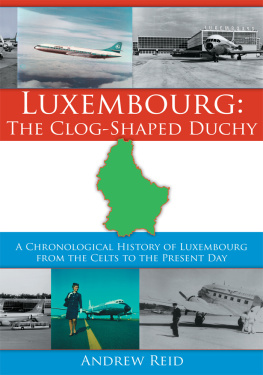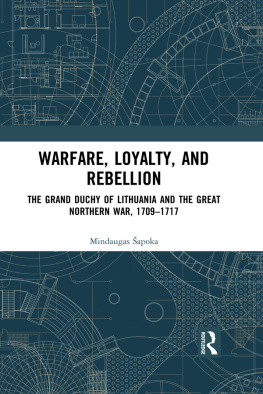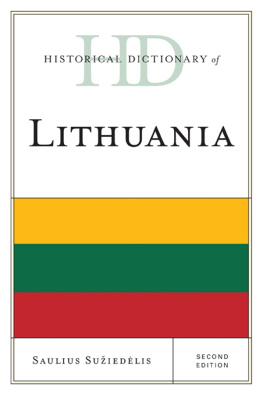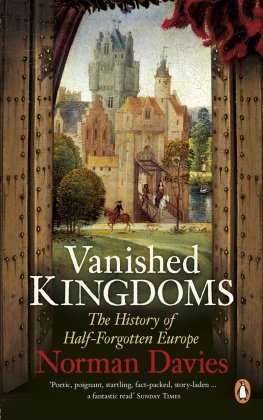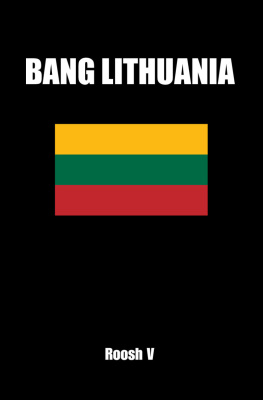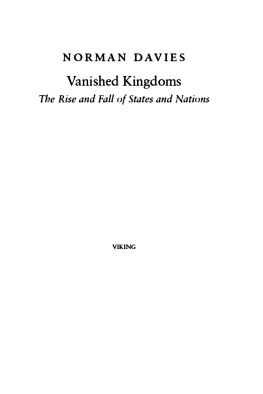
Social and Cultural Relations in the Grand Duchy of Lithuania
The Grand Duchy of Lithuania was one of the largest and most linguistically, ethnically and religiously diverse polities in late medieval and early modern Europe. In the mid-1380s the Grand Duchy of Lithuania entered into a long process of union with the Kingdom of Poland. Since the destruction of the Polish-Lithuanian Commonwealth in 1795, the history and memory of the Grand Duchy of Lithuania have been much contested among its successor nations. This volume aims to excavate a level below their largely incompatible narratives. Instead, in an encounter with freshly discovered or long neglected sources, the authors of this book seek new understanding of the Grand Duchy, its citizens and inhabitants in microhistories. Emphasizing urban and rural spaces, families, communities, networks and travels, this book presents fresh research by established and emerging scholars.
Richard Butterwick is Professor of Polish-Lithuanian History at UCL-SSEES and holds the European Civilization Chair at the College of Europe, Natolin, Warsaw.
Wioletta Pawlikowska is Researcher at the Tadeusz Manteuffel Institute of History of the Polish Academy of Sciences in Warsaw.
Routledge Research in Early Modern History
The English Chartered Trading Companies, 16881763
Guns, Money and Lawyers
Michael Wagner
Enlightenment in Scotland and France
Studies in Political Thought
Mark Hulliung
The School of Salamanca in the Affairs of the Indies
Barbarism and the Political Order
Natsuko Matsumori
Criminal Justice During the Long Eighteenth Century
Theatre, Representation and Emotion
Edited by David Lemmings and Allyson N. May
The English Woollen Industry, c.1200c.1560
John Oldland
Incombustible Lutheran Books in Early Modern Germany
Avner Shamir
The Peace of Augsburg and the Meckhart Confession
Moderate Religion in an Age of Militancy
Adam Glen Hough
Social and Cultural Relations in the Grand Duchy of Lithuania
Microhistories
Edited by Richard Butterwick and Wioletta Pawlikowska
For more information about this series, please visit: www.routledge.com/Routledge-Research-in-Early-Modern-History/book-series/RREMH
Social and Cultural Relations in the Grand Duchy of Lithuania
Microhistories
Edited by Richard Butterwick and Wioletta Pawlikowska
First published 2019
by Routledge
52 Vanderbilt Avenue, New York, NY 10017
and by Routledge
2 Park Square, Milton Park, Abingdon, Oxon, OX14 4RN
Routledge is an imprint of the Taylor & Francis Group, an informa business
2019 Taylor & Francis
The right of Richard Butterwick and Wioletta Pawlikowska to be identified as the authors of the editorial material, and of the authors for their individual chapters, has been asserted in accordance with sections 77 and 78 of the Copyright, Designs and Patents Act 1988.
All rights reserved. No part of this book may be reprinted or reproduced or utilised in any form or by any electronic, mechanical, or other means, now known or hereafter invented, including photocopying and recording, or in any information storage or retrieval system, without permission in writing from the publishers.
Trademark notice: Product or corporate names may be trademarks or registered trademarks, and are used only for identification and explanation without intent to infringe.
Library of Congress Cataloging-in-Publication Data
A catalog record for this book has been requested
ISBN: 978-0-367-20666-6 (hbk)
ISBN: 978-0-429-26280-7 (ebk)
Typeset in Sabon
by Apex CoVantage, LLC
For the Wrblewski Library
of the
Lithuanian Academy of Sciences
in Vilnius
Contents
Wioletta Pawlikowska and Richard Butterwick
Part I
Urban Spaces and Communities
David Frick
Wioletta Pawlikowska
Martynas Jakulis
Jurgita iauinait-Verbickien
Vaida Kamuntaviien
Part II
Families and Networks
Rimvydas Petrauskas
Agn Railait-Bard
Neringa Dambrauskait
Artras Vasiliauskas
Ramun migelskyt-Stukien
Part III
Texts and Travels
Hanna Mazheika
Aleh Dziarnovich
Jakub Niedwied
Richard Butterwick
Micha Gochna
This volume originated in a conference held on 21 March 2015, organized by the School of Slavonic and East European Studies, University College London, with the generous support of the Embassy of the Republic of Lithuania in the United Kingdom, the Embassy of the Republic of Poland in the United Kingdom, the Polish Cultural Institute in London, Vilnius University and the late Count Andrzej Ciechanowieckithe Patron of the Anglo-Belarusian Society. Particular thanks are due to the then Director of SSEES, Jan Kubik, who has been an inexhaustible source of interdisciplinary inspiration both during the proceedings and during the long road to publication. Thirteen of the eighteen speakers have revised or altered their papers for this book; an additional chapter has been contributed by Rimvydas Petrauskas. The editors also wish to offer their thanks to the staff at Routledge, with whom it has been a pleasure to work.
Permission to reproduce illustrative material has been kindly granted by St Georges Convent, Kaunas; the Wrblewski Library of the Lithuanian Academy of Sciences, Vilnius; Vilnius University Library; Den Haag, Koninklijke Bibliotheek and Rolandas Rimknas.
Wioletta Pawlikowska and Richard Butterwick
The first mention of Lithuania is in the early twelfth-century annals of Quedlinburg Abbey. It locates the martyrdom of St Bruno of Querfurt in 1009 in confinio Lituae et Rusciae. This linkage proved significant. The Grand Duchy of Lithuania emerged out of the Baltic forests in the mid-thirteenth century, just as the Teutonic Order was moving in. As it extended its sway across Rus, Europes last pagan polity soon became its largest. It expanded still further, briefly stretching from the shores of the Black Sea to the Baltic, after its rulers adopted Christianity in the 1380s. Their conversion inaugurated an evolving union with the Kingdom of Poland, which became much closer with the formation in 1569 of a joint political community or Commonwealth (Respublica, Rzeczpospolita). Despite its sixteenth-century territorial losses, the Grand Duchy of Lithuania remained one of the largest and most diverse polities in early modern Europe. Here eastern and western Christendom overlapped, the Protestant Reformation made significant inroads, one of the most numerous Jewish communities in the world grew to maturity, while Muslims, Karaites, Old Believers and others found their niches. Integrated into a predominantly agrarian and boreal economy and society were several hundred urban communities, many of whom flourished for centuries.1
The Grand Duchy of Lithuania ultimately lost the long contest for hegemony in eastern Europe to Muscovytransformed into the Russian Empire by Peter the Great. The Polish-Lithuanian Commonwealth was partitioned for the third and final time in 1795. During a long nineteenth century under foreign rule, the Commonwealths Two Nations, Polish and Lithuanian, were transformed. Poland and Lithuania regained independence as separate nation-states in 1918, but neither their union, nor the Grand Duchy of Lithuania were restored. During the two centuries that followed the dismemberment, the common past became a store of contested memories and myths among the Grand Duchys successor nations. These include modern Lithuanians, Belarusians, Poles, Ukrainians, Tatars, Latvians, Russians, Germans and Israelis. Many historians hailing from the region sought to write the history of the Grand Duchy in such a way as to justify the claims to successorship of their own state, nation or nation-state.2 This still applies to much Belarusian, Lithuanian, Polish and Russian historiographyif no longer to German. Sometimes a residual resentment against foreigners who presume to write our history is voiced. It is certainly apparent in the regions entangled politics of history, memory and culture, which in the last few years have once again become more antagonistic.



